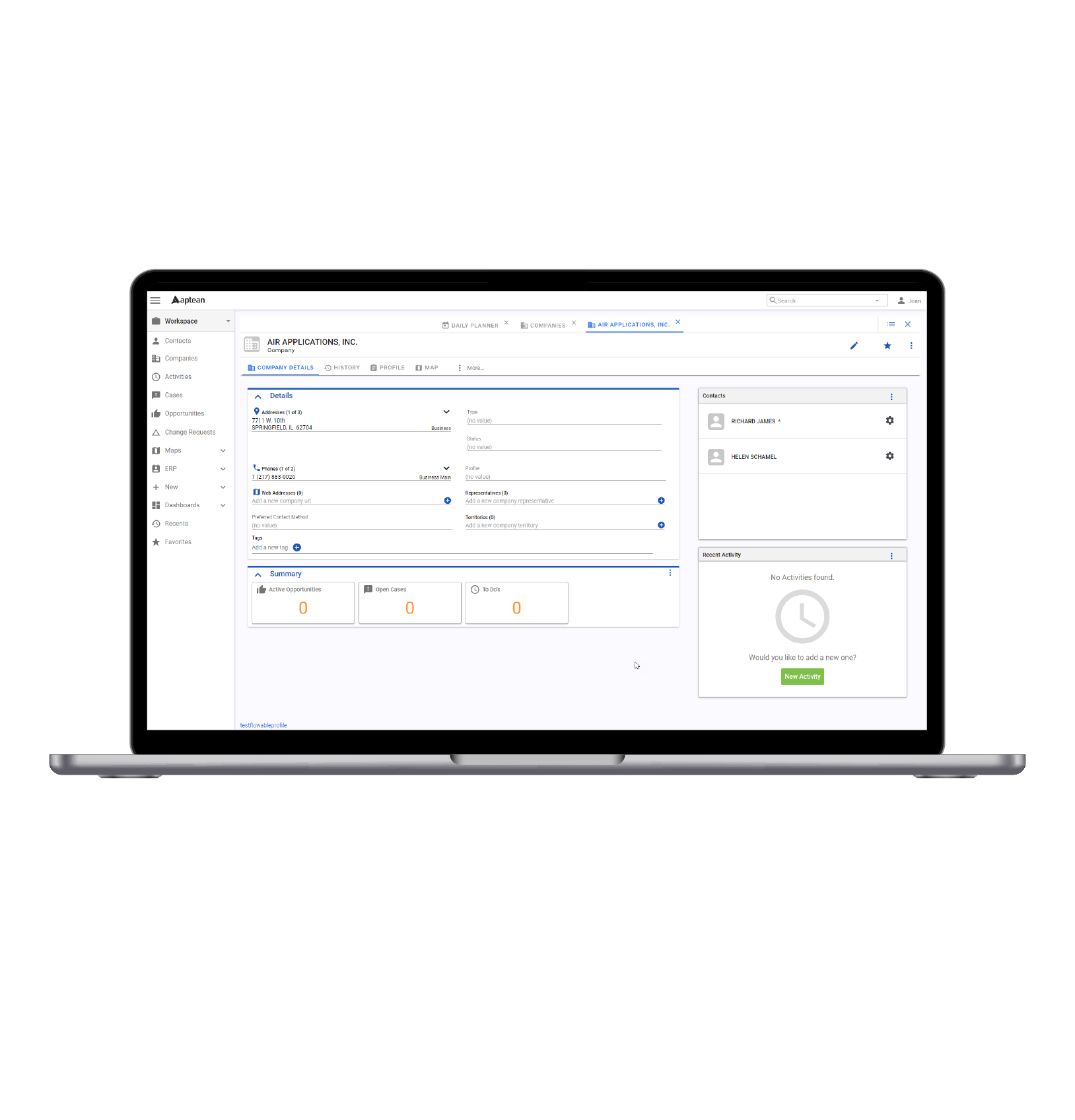Successfully Navigating the RFP Process to Find Your Industrial Manufacturing ERP
Successfully Navigating the RFP Process to Find Your Industrial Manufacturing ERP
Successfully Navigating the RFP Process to Find Your Industrial Manufacturing ERP
Apr 28, 2022
 Andy Pickard | Senior Solutions Consultant, Sales
Andy Pickard | Senior Solutions Consultant, Sales
As with any large-scale change initiative, searching for the right industrial manufacturing enterprise resource planning (ERP) system comes with many questions and some valid concerns. Whether you already know the world of business software well or are just beginning your digital transformation, the process is an involving and complicated journey that warrants great care and thorough diligence.
Of course, you’re not alone in facing this challenge. You have the support of your valued colleagues at your company, and the more buy-in you can get from them, the better your chances of success are. There are also plenty of helpful resources that are just a search engine query away—there’s certainly no shortage of information on the topic out there.
And we’ve got your back, too. We've created a full guide on the top selection criteria to help you compare ERP systems. And our experienced professionals have created a robust and comprehensive request for proposal (RFP) template for companies like yours that are beginning this crucial and intensive project, and it’s designed to get you the answers you need to make an informed and prudent decision.
That being said, we recognize it’s not enough to simply offer the tool without any instruction. That’s why we’ve put together this guide on how to best use an RFP to ensure that you find the ERP that’s best suited for your discrete industrial manufacturing business.
Preparing for the Process
Just as it is with so many other significant organizational changes, proper preparation is key for a smooth and optimized RFP process.
Your first step should be to define the purpose—perhaps you’re aiming to “go paperless” by putting in your first fully digital system or seeking to maximize efficiency and get the most out of your equipment, materials and staff. Whatever the primary goal (or goals) may be, put them down in writing and make them highly visible for all employees.
Next, you need to identify your company’s critical processes. This will in part be determined by the sector in which you operate and the goods you produce—be it electrical equipment, metals, transportation machinery, computers or other electronics. Still, it’s a good idea to involve all departments in outlining this list, as manufacturing might be the most important thing you do, but it’s not the only important thing you do.
Once that’s done, it’s time to assemble your dedicated project team. As we mentioned at the outset of this piece, such a massive undertaking as shopping for ERP products and choosing one to put in place can’t be accomplished without joint effort. For that reason, you’ll want to select volunteers from a variety of business roles and with a range of specialties and areas of interest.
Finally, you should take the time to tailor your RFP form for your specific industry segment. Our template includes many items that deal with the highly specialized procedures involved in industrial manufacturing, but whether you’re using that or creating your own from scratch, you should ensure that features you’ll need for your daily operations are covered in detail so you can get the information you need.
Conducting Research and Issuing Requests
When you browse online to find ERPs, you’ll find plenty of vendors ready and willing to sell you an off-the-shelf product that can solve all your problems and produce the results you seek—or so they claim. To separate out the viable candidates, look for solutions that are designed specifically for discrete industrial manufacturers.
In a similar vein, you should only consider ERP providers with in-depth knowledge and experience in your market. They should be able to demonstrate their expertise in the space and share success stories from implementations with other businesses like yours. It’s not a bad call to even reach out to some of those clients and get their evaluation of the system in practice.
At this point, you should be able to start narrowing down your options and create a shortlist of those you find most promising. You may choose to keep it limited to between 3 and 5 alternatives, or aim for a larger sample of 10 to 15 platforms—either approach can be a sound strategy, but keep in mind that the more proposals you receive, the more work you’ll have to put into evaluating them.
Lastly, determine the ideal timing of your requests according to your company’s needs. If you have a tight budget, you may want to talk pricing with vendors before you issue an RFP to eliminate those that are off the table due to financial reasons. Likewise, you may want to schedule demos of the different software packages on your docket prior to requesting proposals to weed out those with bad interfaces or missing functionalities.
Evaluating Proposals and Initiating Implementation
Once the providers have completed and returned your requests, you’ll need to evaluate the proposals you’ve received. You may find a scoring rubric useful for this purpose—just make sure that it includes sections not only for quantitative measures of the fit (i.e., the number of technical requirements met) as well as qualitative judgments about the cultural fit between your organization and the ERP supplier.
Speaking of, you also need to get an idea of the level of implementation guidance and ongoing support that any given vendor offers. Our template includes items that cover this crucial consideration, but whether or not you’ve chosen to go with our RFP, don’t be afraid to ask additional questions if you want to know more.
Then, all that’s left is to gather together as a project team, weigh the pros and cons of your options and make the decision that best serves your business. Involve all prominent stakeholders in these discussions, as you’ll want to hear and address their concerns now, rather than after you’ve made the purchase and set the deployment in motion.
From there, work with your provider to create a timeline for your rollout, and pick the brains of their most experienced professionals to get actionable advice on best practices and training for employees. You’ll want to understand the different stages and milestones that will come along the way so that you can communicate clearly with your staff and get everyone on board and ready for the adjustment.
What Makes Aptean ERPs Awesome
Now that you’re up to speed on the RFP process and the best way to go about it, we hope that you’ll include Aptean at the top of your list for industrial manufacturing ERP vendors. There are several compelling reasons that our products, and approach to working with customers, are ideal for organizations like yours.
For starters, we have decades of collective industry expertise and are ready to act as a partner throughout your implementation, from building out your roadmap to offering insights from real-world examples we’ve encountered in the past. We’re proud to be a source of support for our clients and have built our systems to be as reliable and versatile as possible.
We’ve also packed our discrete manufacturing ERP, with the features and tools that your company can depend upon for keeping your daily operations humming along without a hitch. From automations that make your processes more efficient and real-time metrics that provide invaluable insights to robust shop floor control functions, it’s got everything you need to succeed in a dynamic market.
If you’d like to hear more about Aptean Industrial Manufacturing ERP or have further questions about the RFP process, feel free to reach out to us. We’re also happy to schedule a personalized demo.
Download the free industrial manufacturing ERP RFP template here.
Request a Callback From a Manufacturing ERP Expert
Discover the benefits of software designed specifically for the discrete manufacturing industry.



